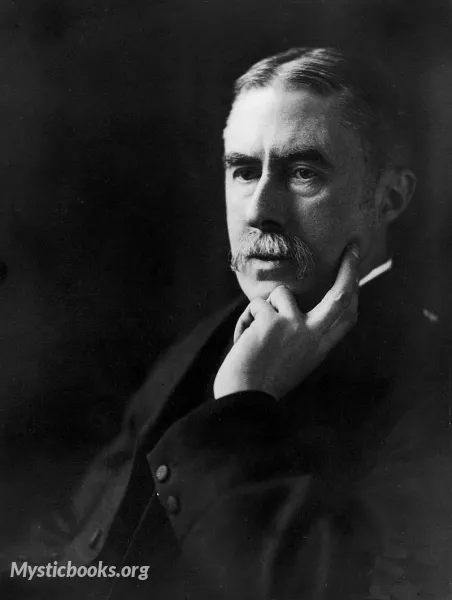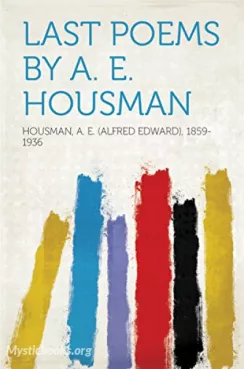
Timeline
Title
Country/Nationality
A. E. Housman
Alfred Edward Housman, often referred to as A. E. Housman, was a prominent English classical scholar and poet, leaving an indelible mark on both academic and literary spheres. Born on 26th March 1859, Housman's legacy continues to captivate readers and scholars alike. This essay delves into his life, principles, notable works, philosophy, and enduring legacy.
Who Was A. E. Housman?
A. E. Housman was born in Worcestershire, England, and grew up in a humble family. From a young age, he demonstrated a keen intellect and a love for classical literature. He excelled academically and received a scholarship to study classics at St. John's College, Oxford. Housman's dedication to scholarship led him to become a prominent classical scholar and a respected professor of Latin at the University of Cambridge.
His Principles and Famous Works
Housman was a man of principles, known for his disciplined and meticulous approach to academic pursuits. His critical edition of the Roman poet Manilius' work, "Astronomicon," showcased his deep understanding of classical literature and earned him significant recognition within the academic community.
However, Housman's enduring fame lies primarily in his poetry. In 1896, he published "A Shropshire Lad," a collection of 63 poems that quickly gained popularity and acclaim. These poems exude themes of love, loss, mortality, and the English countryside. Housman's lyrical and melancholic verses struck a chord with readers, especially the younger generation, who found solace in the emotional depth of his poetry.
His Philosophy
Housman's poetry often reflects a stoic and pessimistic philosophy, contemplating the fleeting nature of life, the inevitability of death, and the bittersweet aspects of love and memory. He explored the themes of unrequited love and the transient nature of happiness, imbuing his poetry with a sense of nostalgia and longing.
Notable Works
Apart from "A Shropshire Lad," Housman produced other notable works throughout his literary career. "Last Poems," published posthumously, included verses that delve even deeper into themes of mortality and human emotions. Housman's poetry is characterized by its poignant simplicity, profound themes, and universal appeal.
Legacy and Remembrance
A. E. Housman's impact on literature and scholarship endures to this day. His poetry continues to be celebrated for its emotional resonance and enduring themes. Many subsequent poets and writers have cited Housman's influence on their work, a testament to the timeless relevance of his art.
Housman passed away on 30th April 1936, but his legacy lives on. He is remembered as a scholar-poet who bridged the gap between classical erudition and modern sentiments, captivating readers with the universality of human experiences.
Interesting Facts
One interesting aspect of Housman's life is his personal struggle with unrequited love. It is believed that his unreciprocated feelings for a fellow student named Moses Jackson inspired some of his most emotional and poignant poetry.
In conclusion, A. E. Housman's life journey from a scholar of classics to a renowned poet reflects the interconnectedness of academia and artistic expression. His profound poetry continues to evoke emotions and inspire generations, making him an unforgettable figure in English literature. From his dedication to scholarship to the timeless appeal of his poetry, A. E. Housman remains a luminary, immortalized through his enduring works and the impact he left on the hearts of countless readers.
Books by A. E. Housman

Last Poems
In the twilight of his literary journey, A. E. Housman graces us with his final poetic masterpiece, "Last Poems." Within its pages, the poet delves deep into the human soul, weaving a tapestry of emotions that reverberate with raw vulnerability and t...

Shropshire Lad
A Shropshire Lad is a cycle of sixty-three poems by the English poet Alfred Edward Housman. A Shropshire Lad was first published in 1896 at Housman's own expense after several publishers had turned it down. At first the book sold slowly, but during t...

When I Was One And Twenty
'When I Was One-and-Twenty' is a classic poem by A. E. Housman that explores the themes of lost youth, love, and nostalgia. The poem is written in a simple yet evocative style, and its use of vivid imagery and metaphor has made it one of the most bel...

night is freezing fast
The night is freezing fast by A. E. Housman is a collection of poems known for their somber tone and lyrical beauty. Exploring themes of lost love, mortality, and the fleeting nature of youth, Housman uses vivid imagery and evocative language to capt...

Yonder See the Morning Blink
Yonder See the Morning Blink by A. E. Housman is a collection of poems that explores the themes of love, loss, mortality, and the beauty of nature. Housman's poems are known for their lyrical beauty and their use of classical allusion. This collectio...